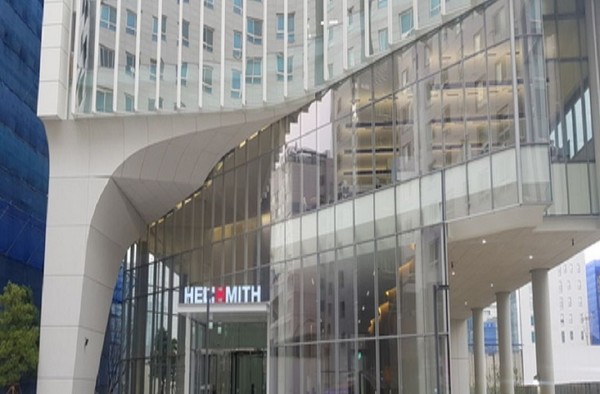Helixsmith said it has presented the topline data of its phase 1 and 2a clinical trials for Engensis, also known as VM202, for treating Charcot-Marie-Tooth (CMT) disease marked by muscle atrophy and gait disturbance.

Professor Choi Byeong-ok Samsung Medical Center, one of the highest authorities on CMT in Korea, conducted the trial on 12 CMT patients.
In measuring the treatment’s efficacy, Professor Choi’s team used several indicators to measure the degree of disability and neuropathy, such as the functional disability scale (FDS), the overall neuropathy limitation scale (ONLS), and Charcot-Marie-Tooth disease neuropathy score version 2 (CMTNS-v2).
In the trials, LVM202 showed excellent safety. Still, the team confirmed two possible drug-related adverse reactions -- mild – ankle edema and itching at the injection site -- and the patients recovered soon from the adverse reaction.
The researchers also confirmed the efficacy of the treatment through FDS and ONLS. In FDS, there was an improvement of one point in seven patients and no change in five patients. In ONLS-leg, four patients showed an improvement of one point, and there was no change in eight patients.
The company said that the average change was 0.33, higher than the 0.18 ONLS-leg shown by its competitor, PXT3003, a CMT treatment candidate developed by Pharnext in the U.S.
In the CMTNS-v2 survey, another effective index for improving the degree of disability, the team confirmed an average decrease of 2.17 points over nine months. Also, the team observed significant improvement in symptoms compared to the baseline in three of the nine items of the CMTNS-v2 score -- sensory symptoms, pain sensitivity, and vibration sensation.
The company stressed that the results show that VM202 can improve neuropathy and prevent disease progression.
“The clinical trial confirmed the excellent safety of Engensis, and improvement some sensory symptoms after analyzing several indicators such as FDS, ONLS, and CMTNS-v2,” Helixmith CEO Kim Sun-young said. “In the next clinical trial, the company expects to measure the effect of the treatment more clearly by increasing the size of the clinic and selecting patients with advanced symptoms.”
CMT is a genetic disease in which the muscles of the arms and legs atrophy, and gait disturbance occurs due to progressive damage to the motor and sensory nerves. Although classified as a rare disease, it has the highest prevalence among rare diseases, with one in 2500. There are no treatments approved by the U.S. Food and Drug Administration for the illness.

